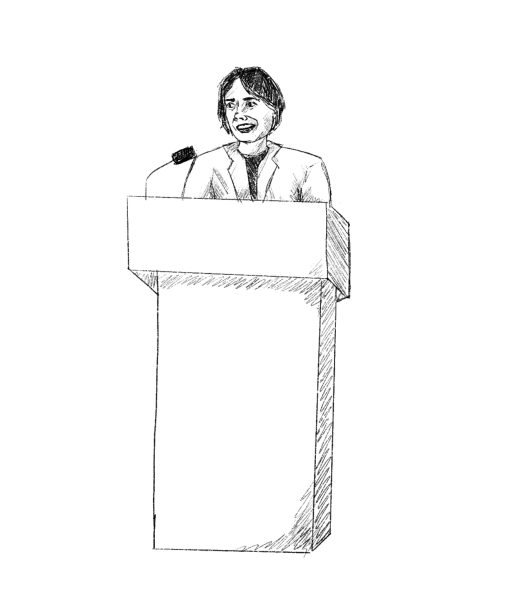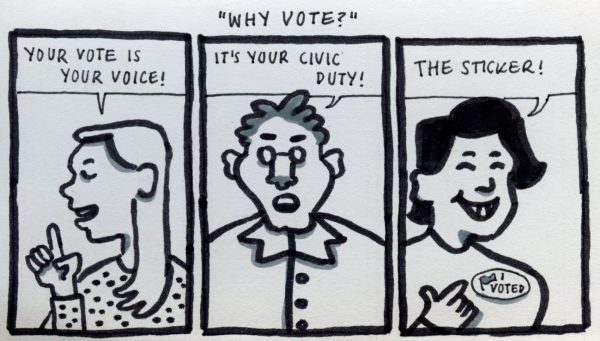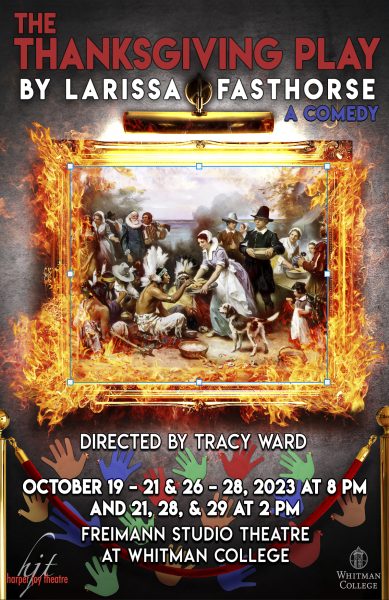Theatre Department’s Unique “Echo Chamber” Project Breaks Boundaries
April 6, 2017
Turning frustration and disagreement into a compelling and powerful theater production was Whitman student Lud Brito’s project in putting together “Echo Chamber.” The production is a play that utilizes music, dance and spoken word. Already performed twice in Harper Joy Theatre, the next showing is scheduled for Sunday, April 9 at 2 p.m. and 7 p.m. at the Gesa Powerhouse Theatre.
As director, producer and initiator of “Echo Chamber,” Brito explained the thinking behind the production.
“It … was created sort of in the frustration of the political polarization both in Brazil after the Brazilian president got impeached, and then after the elections in the United States, just seeing how everybody got so frustrated,” Brito said. “It was a way of channeling that frustration into creating something productive— something useful— that people could make use of those happenings to take positive stand and positive action toward something instead of just struggling with it.”
The need for discussion is applicable at Whitman, where Brito and Stage Manager Maddy Gold noticed the hesitance to engage in difficult conversations and to listen with open minds.
“I think on this campus we have a very big call-out culture,” Gold said. “What I mean by that is when somebody has a different opinion than you, students at Whitman are easy to jump on them and say, ‘That’s wrong,’ instead of exploring that idea and exploring why they might have a different opinion. I’ve hoped [this] would be a goal of the project, making people, hopefully, instead of having call-out culture, calling each other in.”
Whitman is known for being a liberal bubble or an “echo chamber” itself, and surrounding oneself by like-minded people is a human tendency. Even those involved in the production acknowledge that there are biases present in themselves, but they still strive for meaningful conversation both onstage and in their own lives. Likewise, the show portrays characters interacting while coming from many points of view: people in a doctor’s office hoping to see the humans behind political fronts, a liberal character and a conservative character going on a first date and a Republican woman admitting to not being able to relate to a left-wing woman’s problems, but still willing to listen.
Cast member Nhi Cao spoke to the play’s ability to emerge from various echo chambers.
“It really taps into the differences in the voices that each individual has and to pay attention to that,” Cao said.
The play does an excellent job of engaging audience members while exploring how people with different beliefs might interact in a productive way. Music and dance create a visible community onstage and each scene offers a fresh take on the topics, whether it be through humor or emotional speech. Talking to each other instead of about one another is a repeated line. Moreover, the play itself is a chance for students to talk through an engaging medium.
“If you go to a guest speaker talk, you’re really interested in what they’re going to say,” Brito said. “If you’re going to a conference on a certain topic, you’re wanting to learn about the topic. But if you go to watch a play that has music and songs, you’re there to have fun … What’s magic about the theater is that you’re able to empathize with people you disagree with onstage, like there is a villain but you know why the villain is the villain. You can understand where every single person [is coming from]. You can love a character even though you disagree with them, and I think that’s the beautiful thing about theater.”
“Echo Chamber” not only encourages discussion between different people, but also offers an opportunity to begin to do so right there. After each performance, there is a short talk-back session where audience members can give feedback or ask questions. Followed by that is a reception with more opportunities to discuss, or to write thoughts down on Post-It notes.
The messages in the show underline the potential for different people to get along, culminating in a format that initiates a move to understand and converse with people outside one’s own echo chamber.











